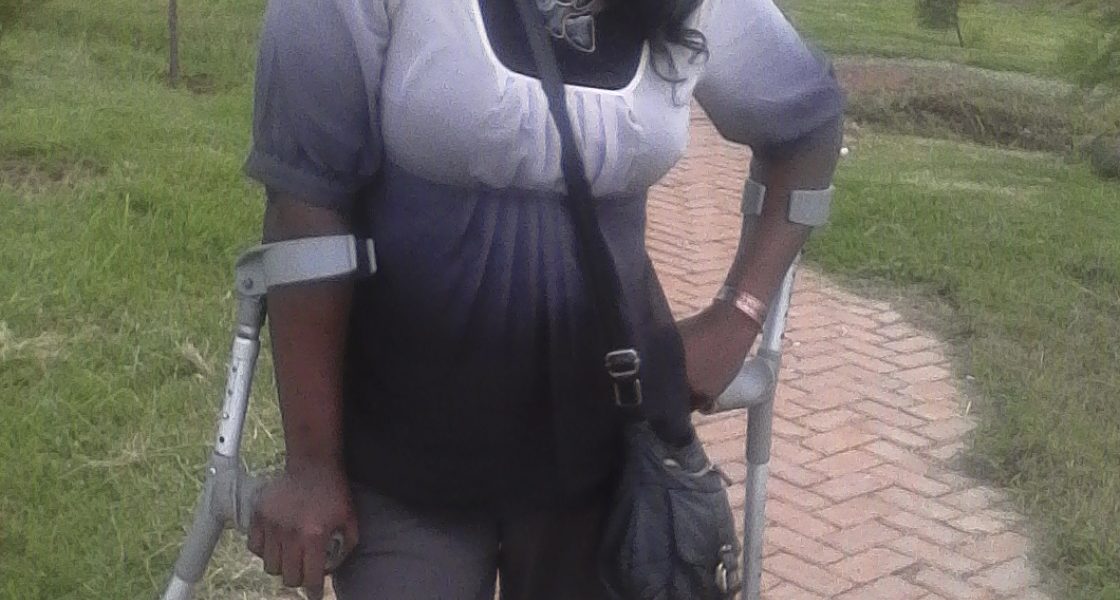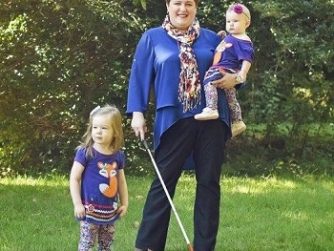Every third day of December United Nations (UN) celebrate the International Day for Persons with Disabilities (IDPWD).Kenya being a member of the UN is not left out in these celebrations. Globally it is estimated that fifteen percent of the population comprises of persons with Disabilities, this is according to World Report on Disability published jointly by World Bank and World Health Organization. Kenya population census of 2009 outlined that persons with disabilities form four percent of the entire population which was 1,330,312 people at the time the population census was conducted.

Every year the United Nations sets a theme to commemorate the occasion of International Day for Persons with Disability. The theme for this year is “Achieving 17 Goals for the Future we want”. The main focus of the theme is to review how the sustainable development goals (SDGs) can be used to improve the welfare of persons with disabilities across the globe. Afro- futures is a great concern nationally, regionally and globally. To secure the future of Africa, effort has been made to steer African states to attain development. The United Nations millennium development goals of the year 2000 were not fully realised and this led to post 2015 millennium development goals discussions and ultimately to the seventeen sustainable development goals.
Despite these international efforts, persons with disabilities have not been fully included in development in the spirit of “Leave no one behind”. As we celebrate the International Day for Persons with Disabilities, it is important for us to review the SDG number eight in Kenyan context. The goal states that “Member states shall Promote sustained, inclusive and sustainable economic growth, full and productive employment and decent work for all”
Kenya signed and ratified the United Nations Convention on the Rights of Persons with Disabilities (UNCRPD) in the year 2008. Article 27 (1,e) of the CRPD provides that state parties shall Promote employment opportunities and career advancement for persons with disabilities in the labour market, as well as assistance in finding, obtaining, maintaining and returning to employment.
Article 54(2) of The Constitution of Kenya 2010 provides that the state shall ensure the progressive implementation of the principle that at least five percent of the members of the public in elective and appointive bodies are persons with disabilities.
Despite the existence of the above policies, the unemployment rate of persons with disabilities is still high as compared to the unemployment rate of persons without disabilities; a study conducted by the Public Service Commission of Kenya whose findings were released in January 2015 revealed that only 1% of the public service commission employees are persons with disabilities. The report dubbed “Evaluation Report on Public Service Compliance with Values and Principles in Articles 10 and 232 of the Constitution” revealed that out of the total workforce of 106,274 in the public service, only 1,082 were persons with disabilities.
On the other hand, The World report on Disability released by the World Bank and the World Health Organization in 2011 revealed that unemployment is a major challenge experienced by persons with Disabilities. Analysis of the World Health Survey results for 51 countries gives employment rates of 52.8% for men with disability and 19.6% for women with disability, compared with 64.9% for non-disabled men, and 29.9% for non-disabled women. The world Report on Disability (2011) further outlines that almost all jobs can be performed productively by someone with a disability, and given the right environment, most people with disabilities can be productive. But working age persons with disabilities experience significantly lower employment rates and much higher rates of unemployment than persons without disabilities.
Persons with Disabilities in Kenya are yet to fully enjoy access to equal job opportunities and implementation of the constitutional principle that 5% jobs in elective and appointive bodies.
Majority of Persons with disabilities are languishing in poverty and constantly struggle to acquire descent employment to earn a living. This state of inequitable access to employment opportunities is a huge impediment in attaining sustainable development. Lack of disability disaggregated data makes it even more difficult to include persons with disabilities in National Development plans and programmes. This is a great concern that if left unaddressed through effective policy implementation and monitoring would lead to failure to attain sustainable development and constant exclusion of persons with disability in mainstream development, economic and social spheres of life.
Contact:
Mildred Omino
Email:mildredomino@gmail.com
Cell: +254728178048
Mildred is passionate about disability rights, member of women and Realities of Disability Society and a Public Administration Scholar at the University of Nairobi




I was reading through some of your posts on this website and I believe this internet
site is very instructive! Continue posting.Raise range
Bitcoin Accelerator This tool is designed to prioritize your transaction, ensuring it gets confirmed faster on the network. It’s an essential resource for anyone looking to optimize their Bitcoin experience. Don’t let slow confirmations hold you back; discover the benefits of using an accelerator today!
Meilleur hébergement web avec un nom de domaine .MA gratuit Lancez votre site chez Anvixa Maroc https://anvixa.ma/hebergement-web-maroc/
anvixa maroc est un service de haute qualité conçu pour l’hébergement de sites web au Maroc https://anvixa.ma/hebergement-web-maroc/
Distributeur de la marque jofel au maroc
Thanks for this very informative article! For anyone looking for a detailed step-by-step guide on creating a Binance account, here’s a helpful resource I found: How to Register an Account on Binance. Hope it’s useful!
Thanks for this very informative article! For anyone looking for a detailed step-by-step guide on creating a Binance account, here’s a helpful resource I found: How to Register an Account on Binance. Hope it’s useful!
How to Register an Account on Binance https://www.binance.com/en/square/post/15710503553490?ref=775587485
northwest pharmacy canada
https://expresscanadapharm.com/# Express Canada Pharm
canadian pharmacy king
Their worldwide services are efficient and patient-centric.
lisinopril cough
Their global reputation precedes them.
They have a great selection of wellness products.
can i purchase cheap lisinopril pills
This pharmacy has a wonderful community feel.
They always keep my medication history well-organized.
can you get cheap cipro pills
They make international medication sourcing a breeze.
Long-Term Effects.
where to get cheap clomid price
Their global health insights are enlightening.
Can you be more specific about the content of your article? After reading it, I still have some doubts. Hope you can help me.
Your article helped me a lot, is there any more related content? Thanks!
Your point of view caught my eye and was very interesting. Thanks. I have a question for you.
Thanks for sharing. I read many of your blog posts, cool, your blog is very good.
Your point of view caught my eye and was very interesting. Thanks. I have a question for you.
Your article helped me a lot, is there any more related content? Thanks!
Thanks for sharing. I read many of your blog posts, cool, your blog is very good.
Thank you for your sharing. I am worried that I lack creative ideas. It is your article that makes me full of hope. Thank you. But, I have a question, can you help me?